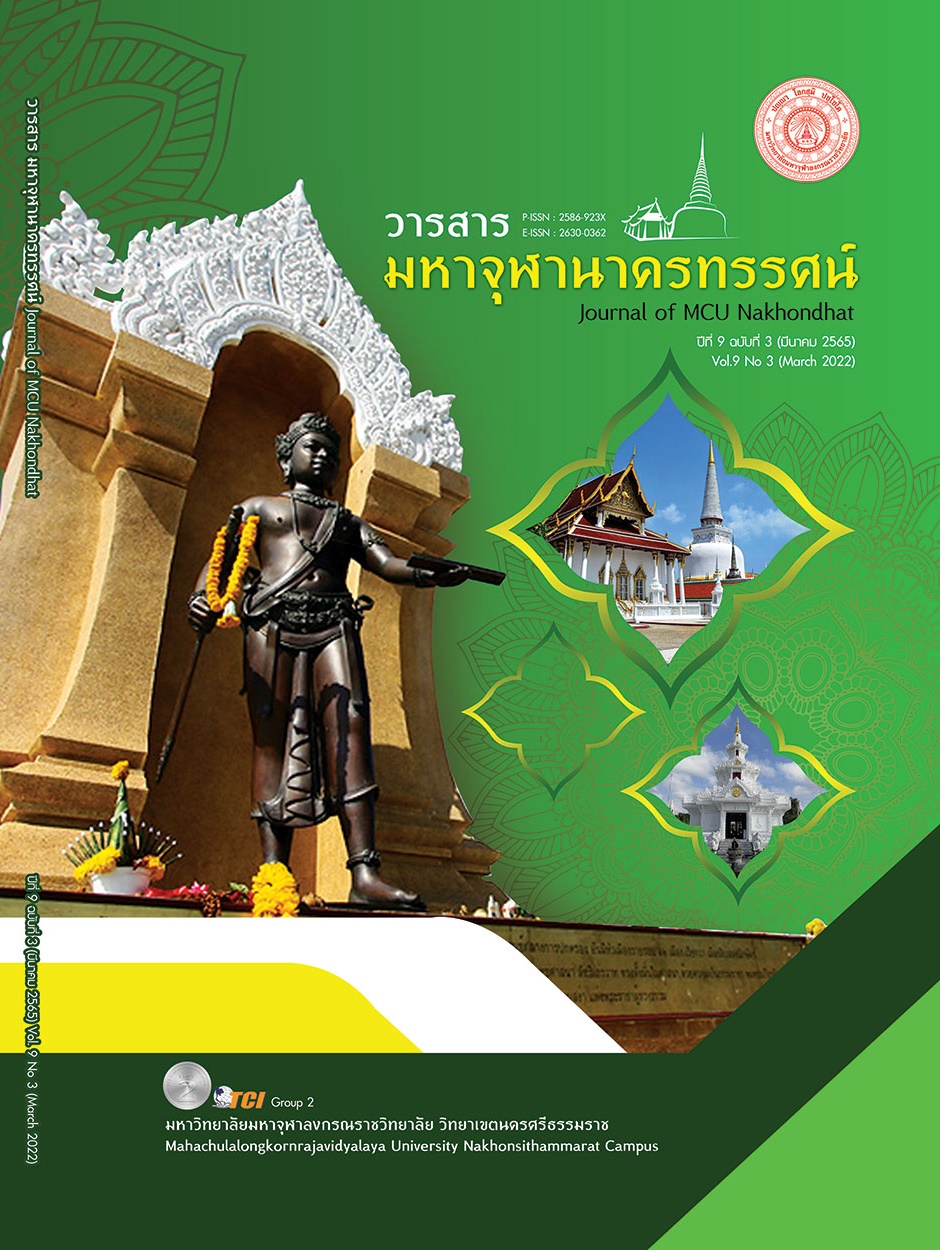DEVELOPMENT OF PUBLIC MIND ENHANCEMENT ACTIVITIES MODEL OF TEACHERS IN NORTH BANGKOK GROUP ZONE UNDER THE JURISDICTION OF BANGKOK NON -FORMAL AND INFORMAL EDUCATION OFFICE
Main Article Content
Abstract
The objectives of this research article were to: 1) study development of public mind enhancement activities model, 2) manage development of public mind enhancement activities model usage and 3) evaluate development of public mind enhancement activities model. The research methodology was a mixed method. The study population consisted of the first group was 13,705 leaners from 7 areas; the second group was 99 teachers and personnel. The third group was interviewed 15 policy leaders, experts, scholars and educational institution from 7 areas. The research instruments were questionnaire and interview guide. The reliability of the questionnaire was .85. The statistic used for data analysis included frequency, percentage, means, standard deviation, T-test and One Way ANOVA. The study results revealed that 1) building level of development of public mind enhancement activities model as a whole was at much level. When considering each aspect by the highest to the lowest, it found that 3 aspects were at the highest level that the feasibility aspect of the form of organizing activities to enhance the teachers' public mind, the appropriateness aspect of the form of organizing activities to enhance the teachers' public mind, the utility aspect. Agreement aspect, sufficiency aspect and ethics aspect were at the high level. 2) to used enhancement activities model, it found that consciousness of helping aspect, public mind enhancement in line and
and 3) to evaluate development of public mind enhancement activities model found that there were 3 development aspects showed cognitive aspect, reason using in decision making aspect and behavior aspect, right, duty cognitive aspect of oneself and others and public mind development in individual person should be developed from childhood.
Article Details

This work is licensed under a Creative Commons Attribution-NonCommercial-NoDerivatives 4.0 International License.
References
โกศล มีคุณ และณรงค์ เทียมเมฆ. (2545). ผลการฝึกใช้เหตุผลเชิงจริยธรรมที่มีจิตสาธารณะและพฤติกรรมของครูรายงานการวิจัยทุนสนับสนุนจากโครงการแม่บท. กรุงเทพมหานคร: การวิจัยและพัฒนาระบบ.
จุมพล พูลภัทรชีวิน. (2552). จิตตปัญญาศึกษา: รุ่งอรุณแห่งจิตสำนึกใหม่ทางการศึกษา. จุลสารประชาคมประกันคุณภาพการศึกษา, 7(5), 6-9.
โฉมฉาย กาศโอสถ. (2554). รูปแบบการบริหารกิจการนักเรียนแบบมีส่วนร่วมในสถานศึกษาระดับประถมศึกษา สังกัดสำนักงานคณะกรรมการการศึกษาขั้นพื้นฐาน. ใน วิทยานิพนธ์ สาขาบริหารการศึกษา. มหาวิทยาลัยนเรศวร.
ชัยวัฒน์ สุทธิรัตน์. (2552). สอนเด็กให้มีจิตสาธารณะ. กรุงเทพมหานคร: วิพริ้น.
นริศรา ริชาร์ดสัน. (2556). เก่งได้ไร้ขีดจำกัด. เอกสารสำเนาเอกสารประกอบการประชุมนิสิต. ใน วิทยานิพนธ์ สาขาการศึกษาเพื่อพัฒนาทรัพยากรมนุษย์. มหาวิทยาลัยทักษิณ.
วัลยา ธรรมอภิบาล. (2555). การพัฒนาหลักสูตรเสริมสร้างจิตสาธารณะสำหรับนิสิต ระดับปริญญาตรี มหาวิทยาลัยทักษิณ วิทยาเขตสงขลา. ใน ดุษฎีนิพนธ์ สาขาวิชาการวิจัยและพัฒนาหลักสูตร. มหาวิทยาลัยศรีนครินทรวิโรฒ.
สำนักงานคณะกรรมการการพัฒนาเศรษฐกิจและสังคมแห่งชาติ. (2560). จิตสานึกที่ดีต่อสังคมส่วนรวม การพัฒนาทักษะ. เรียกใช้เมื่อ 20 มีนาคม 2564 จาก https://www.nesdc.go.th/main.php?filename=index
อาจอง ชุมสาย ณ อยุธยา. (2556). คุณธรรมนำความรู้ : รูปแบบการสอนแบบบูรณาการ คุณค่าความเป็นมนุษย์ (พิมพ์ครั้งที่ 2). กรุงเทพมหานคร: วี.ที.ซี คอมมูนิเคชั่น.
Goleman, D. (1998). What Make the Leader? Harvard business review, 7(6), 93-104.
Krejcie & Morgan. (1970). Approach in Quantitative Research. วารสารวิชาการศิลปศาสตร์ประยุกต์, 7(2), 112-125.


